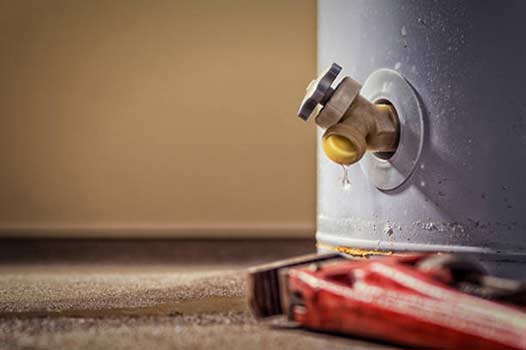
As the temperatures drop during the winter months, it’s important to take steps to protect your water heater from freezing. A frozen water heater can lead to extensive damage, costly repairs, and even the need for a complete replacement. Here we will provide you with practical tips and advice to help you prevent your water heater from freezing and keep it running smoothly throughout the winter season.
Understanding the Risks
Before we get into the preventive measures, let’s briefly discuss the risks associated with a frozen water heater. When water inside the tank freezes, it expands and puts immense pressure on the tank walls. This can result in cracks or even a complete rupture, causing water leakage and extensive damage to the surrounding area. Additionally, frozen pipes connected to the water heater can disrupt the flow of hot water, leaving you without a reliable source of heated water.
Insulate Your Water Heater
One of the most effective ways to prevent your water heater from freezing is by insulating it. Adding insulation helps retain the heat inside the tank, minimizing the chances of freezing. Here’s how you can insulate your water heater:
- Measure the dimensions of your water heater to determine the amount of insulation needed.
- Purchase an insulating blanket or jacket specifically designed for water heaters.
- Carefully wrap the insulating blanket around the water heater, ensuring that it covers all visible surfaces.
- Secure the insulation with tape or straps to keep it in place.
By insulating your water heater, you create an extra layer of protection against freezing temperatures.
Seal Any Air Leaks
Air leaks in the vicinity of your water heater can contribute to freezing. Cold air entering the area makes it harder for the water heater to maintain a desirable temperature. To prevent air leaks, follow these steps:
- Inspect the area around your water heater for any visible gaps, cracks, or openings in the walls.
- Apply weatherstripping or caulk to seal the gaps and cracks, preventing cold air from entering.
- Check the area around pipes and connections for leaks, and repair any damaged sections.
By sealing air leaks, you create a more controlled environment for your water heater, reducing the risk of freezing.
Keep the Area Warm
Maintaining a warm environment around the water heater is crucial in preventing freezing. Here are some steps you can take to achieve this:
- If your water heater is located in a garage or basement, consider insulating the entire space.
- Install a space heater or a heat lamp near the water heater to provide additional warmth.
- Use insulation to cover any exposed pipes connected to the water heater.
- Keep the surrounding area clean and free from clutter to allow for proper airflow.
Creating a warm and insulated area around the water heater helps maintain a consistent temperature, minimizing the risk of freezing.

By draining the water heater, you eliminate the risk of trapped water freezing and causing damage during the winter months
Drain the Water Heater
Before the onset of winter, it’s a good idea to drain your water heater to remove any existing water that can freeze and cause damage. Follow these instructions to safely drain your water heater:
- Turn off the power supply to the water heater.
- Locate the drain valve at the base of the water heater and attach a garden hose.
- Open the pressure relief valve to prevent a vacuum from forming.
- Open the drain valve and let the water flow out through the hose.
- Once the tank is fully drained, close the drain valve and remove the hose.
By draining the water heater, you eliminate the risk of trapped water freezing and causing damage during the winter months. More on draining your water heater can be found here.
Keep the Water Heater Running
Another effective method to prevent freezing is to keep the water heater running at a steady temperature, even when not in use. Here’s how you can do it:
- Check the thermostat on your water heater and set it to a minimum of 50 degrees Fahrenheit.
- Leave the water heater on continuously, even when you’re away or not using hot water frequently.
By maintaining a consistent temperature, you ensure that the water inside the tank stays above freezing point, eliminating the risk of freezing.
Final Thoughts
Winter weather can pose a threat to your water heater, but with the right preventative measures, you can avoid costly repairs and keep your water heater functioning optimally. Remember to insulate the water heater, seal air leaks, keep the surrounding area warm, drain the water heater, and keep it running at a steady temperature. By following these guidelines, you can protect your water heater from freezing and prevent a premature water heater replacement.